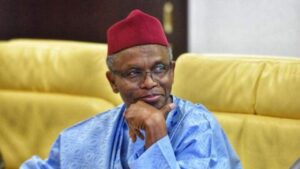The International Monetary Fund (IMF) has urged the Federal Government of Nigeria to tackle the rising food crisis in the country, saying about 18.6 million Nigerians are currently experiencing acute food insecurity.
However, in a statement on Monday night, on the completion of its 2024 Article IV Mission to Nigeria, the Fund welcomed the Government’s approval of an “effective and well-targeted social protection system”, release of grains, seeds, and fertilisers, as well as the introduction of dry-season farming.
It noted that although recent improvements in revenue collection and oil production are encouraging, “Nigeria’s low revenue mobilisation constrains the government’s ability to respond to shocks and to promote long-term development.”
“The capping of fuel pump prices and electricity tariffs below cost recovery could have a fiscal cost of up to 3 per cent of GDP in 2024.
“The recently approved targeted social safety net program that will provide cash transfers to vulnerable households needs to be fully implemented before the government can address costly, implicit fuel and electricity subsidies in a manner that will ensure low-income households are protected,” IMF added.
Commenting on the Monetary Policy Committee’s (MPC) decision to further tighten monetary policy by hiking the policy rate by 400 basis points to 22.75 per cent, the IMF said it supports the move, which it believes “should help contain inflation, which reached 29.9 per cent year-on-year in January 2024, and pressures on the naira.”
On the country’s growth prospects, the IMF said: “Nigeria’s economic outlook is challenging. Economic growth strengthened in the fourth quarter, with GDP growth reaching 2.8 per cent in 2023.
“This falls slightly short of population growth dynamics. Improved oil production and an expected better harvest in the second half of the year are positive for 2024 GDP growth, which is projected to reach 3.2 per cent, although high inflation, naira weakness, and policy tightening will provide headwinds.”










More Stories
Zelensky says he is ‘ready’ to resign as Ukraine president
In mass firings, Elon Musk’s DOGE demands U.S. federal employees detail work done in previous week or turn in resignations
Kidnappers abduct 60-year-old patient from Kano Neuro-Psychiatric hospital